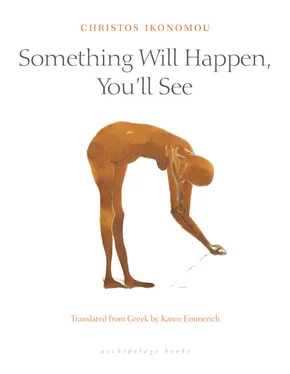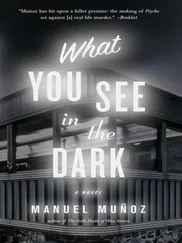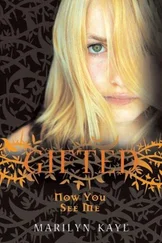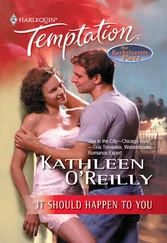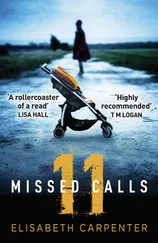He gets up out of bed holding his breath. Very slowly and carefully. It seems to him that it takes a whole hour to stand up from the bed. And another to walk out of the bedroom because the floor squeaks. It growls like an animal that’s had its tail stepped on. From the bedroom to the kitchen is another hour.
It’s like going from Chania to Souda Bay, Vassilis thinks.
In the kitchen he lights a cigarette and cracks open the window to let the smoke out. November. It’s windy again tonight. And cold. He smokes and feels cold and thinks how nice it would be if he had some tsikoudia tonight, a drop of wine, something. He smokes and remembers that uncle of his whose wife locked him in the house so he wouldn’t go to the tavern and he sat there and drank all of her perfume. They’d fired him from his job two years before he would have been eligible for retirement. That’s when things took a turn for the worse. He found work wherever he could, even delivered souvlaki on a motorbike. And no one could believe a man could become a drunk in his sixties.
He smokes and strange thoughts pass through his mind.
He smokes and looks at the eucalyptus trees on the street below, how the branches come together and part in the wind. He smokes and counts the streetlights on the street across the way that seems to vanish into the sky. Sky Street. He keeps saying they should go there one evening in the car to see where it starts and where it ends and count the yellow streetlights from up close but Lena says no.
I don’t like that street, she says. The way it ends so abruptly. We’re never going to go there, you understand? Never.
He smokes until the cigarette burns out all on its own and then he opens the tap in the sink just a smidge and throws his cigarette butt down the drain. He checks the burners on the electric stove one by one. He makes sure there are no candles burning, makes sure the toaster isn’t plugged in, or the water heater left on. He makes sure the danger of a fire is negligible.
Lena has her hands crossed over her chest. As soon as he lies down beside her she opens her eyes.
What happened, she asks. Why did you stop?
I thought you were asleep. Sorry.
Don’t stop. Talk. So I can hear your voice.
She closes her eyes. Vassilis turns over onto his side propping himself on his elbow and looks out at the lights on the street that climbs up the hill. Then he bends over Lena and starts to stroke her ears. Slowly and gently with circular motions he strokes Lena’s ears. It’s the first time he’s ever done that. The first time. He can hear his heart beating. Lena makes a cooing sound and in the darkness he thinks he sees her lips trembling. But it could just be his imagination. Except she’s definitely cooing — and it’s the only sound that doesn’t frighten him. The only sound in the night that pours a drop of sweetness into his heart.
And then he starts to talk again.
LOSING YOUR JOB is like breaking a limb.
The afternoon when they fired us I went down to the port. By foot from Korydallos like a hunted man Halkidona Maniatika then straight down Thermopyle to Agios Dionysios and the dock where the boats for Crete come in. I went like a hunted man because the day seemed frightening somehow a day in July and the place black with heat. There was a strange light that day black and harsh as if some curse had changed the shapes of things and made everything unrecognizable houses roads cars everything unrecognizable as if you were a stranger in a strange land and all the people had vanished and all you saw was a frightened dog every now and then licking the water that dripped from the air conditioners overhead that shuddered and panted and I kept walking and looking up at those air conditioners and saying up there it’s another day another country a cool day in a country that sleeps cool and full and scared. I kept going but it wasn’t easy it was as if something had broken inside me and I kept thinking about what Aris had said while emptying his locker and folding his uniform and gloves and the khaki work belt and all his stupid clothes he had to wear on the job folding them all slowly and carefully as if they weren’t dirty stained work clothes full of holes but the clothes of some person who had suddenly died and left them all behind and someone else who was still alive had to gather them someone always has to do that someone always has to gather the things of the dead because the things the dead leave behind are the last bits of rope binding them to this world and some living person always has to untie those last bits of rope because no man is an island right we’re just boats.
That’s what Aris said.
Losing your job is like breaking a limb.
• • •
I had a place down at the port. A place all my own, like a second home, a rickety wooden bench over by where the trucks headed for Crete sat and waited to load. I sat there too every evening, winter and summer, for hours, and watched the ships coming in and out of the port and the people and cars and trucks embarking and disembarking. If I had anything to drink I drank and sang, always the same song, always “Sittin’ On the Dock of the Bay” — Otis Redding is just the thing for someone spending his hours down at the port, at the dock, where the sea meets the land, where everything is both together and apart, where people come together or part, like sand and waves, sometimes calm and indifferent and sometimes with a terrible roar and passion. Even if I was sober I still sang the same song, always the same song, and it bothered me that I could never get Otis’s whistling right, not once, not a single time, drunk or sober — I sing like a bald crow and whistle like a pelican, as Aris used to say. If the weather was nice I would stay and watch the sunset. I watched the sun and the light from the sun falling on things, the last rays before the sunlight disappeared, I watched the light from the sun slip slowly over the ships and the warehouses and over the apartment buildings that lined the port over the people drinking coffee on their balconies or smoking or watching television or driving or walking or running to catch the bus and over women hanging clothes out to dry on the tops of buildings and children hiding behind sheets which were white or printed and pretending to be ghosts and shouting boo and frightening their mothers. Over the sparrows and the turtledoves that cooed and flapped their wings and drank the water that dripped drop by drop from the solar-powered water heaters. And the things I saw were more beautiful and hurt my eyes more than what I thought I was seeing, because what I thought I was seeing was fire. A fire that burned the world from the inside, without flames or smoke, a fire that burned the world silently and secretly and punishingly. Aris didn’t believe any of it, didn’t believe that the birds drank water that dripped from the water heaters or that I saw fires burning without smoke or flames, but one Christmas Eve — the last Christmas I remember it snowing at the port, and when I went down and saw my bench from a distance it was buried in a pile of crusted snow and I thought it looked like a huge delicious Christmas cookie covered with powdered sugar, or like an unborn snowman waiting to come into the world, waiting for someone to turn him into a proper snowman, with a pudgy body, a round head, and a carrot for a nose — that Christmas Eve Aris bought me a present with part of his Christmas bonus and gave it to me as we were getting off work. It was wrapped in shiny red paper with Saint Vassilises and flying sleighs pulled by reindeer without antlers. When I tore the paper and opened the box I saw a pair of goggles like the kind welders wear, a big pair of goggles with orange protective plastic and very thick lenses.
Читать дальше
